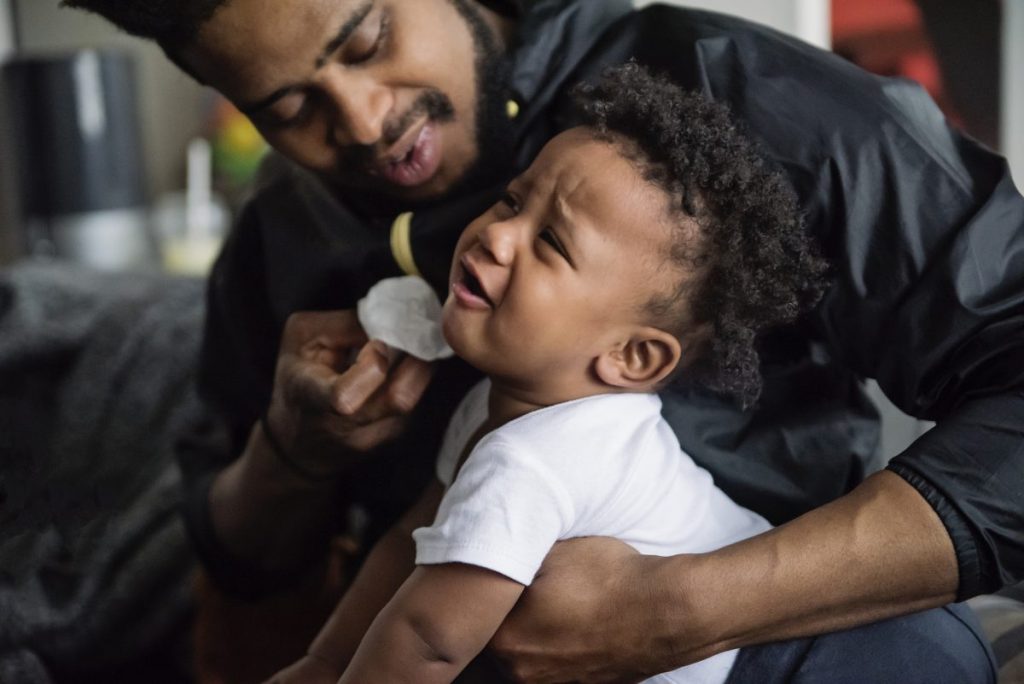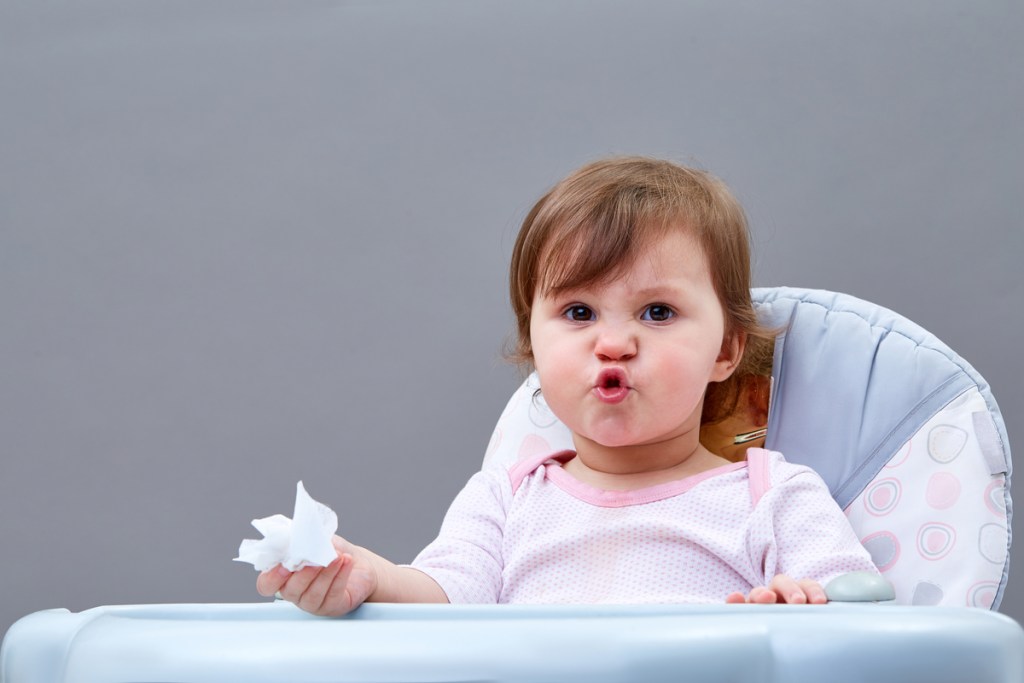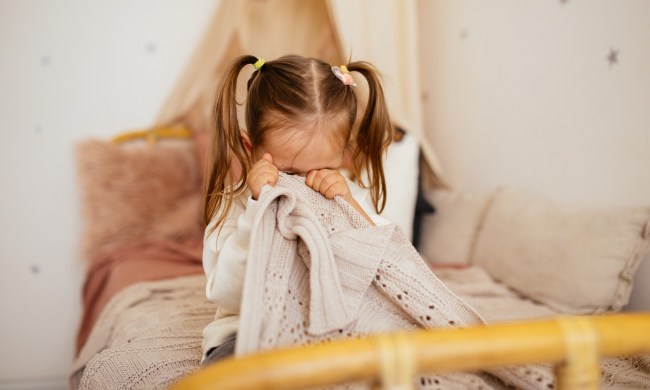Watching your child discover new things is always exciting, especially once they find their hands. At this point, you may find that they are obsessed with touching anything and everything. Among their exploring, you may have noticed your baby scratching their nose more than normal. At first, it seemed like it was only an itch, but now your little one is constantly touching their nose. Is this another quirky baby stage to get through, or something more concerning?
If you have seen your tot grabbing at their nose and getting whiny, there are a few things to check out and then try to get them back to a happy baby. An itchy nose outside could mean something needs a deeper look inside. Let’s see what your baby’s extra interest in their nose could really be about.

Start with the basic reasons for an irritated nose
Check inside their nose
The first thing to do would be to check up their nose. Your baby might have a bit of dirt or a baby booger in there irritating them. Get the sucker and make sure all is clear. If your baby shows signs they might be willing, teach them to blow their nose. It might seem too obvious or too simple, but sometimes it is just that. If only all baby cries and cues were that easy to fix.
Check out their bedding
You love to sleep on fresh, clean sheets, right? Your baby’s nose could be irritated from dirty and dusty bedding. With all the excitement — and then the sleep deprivation — that comes with a new baby, it could be something easily overlooked on 3 hours of interrupted sleep.
It’s hard to remember to do everything with a new addition at home. Write it down on the board, set new sheets out to remind yourself, or do whatever else you have to do to get it done. You don’t like sleeping on gross, stale sheets and that’s possibly messing with your baby’s nose.
Your baby is plain tuckered out
This is what every parent wants to hear — the answer to a problem is to put your baby down for a nap. Your baby scratching at their nose could mean they don’t want to rub their eyes anymore, and they want to get to sleep. If only a nap was the answer to everything.
If your baby is overly tired and doesn’t know what else to do with their hands, they’ll make their way to their nose. Getting your little one to take even a small nap resets their little brain and gets them back to normal. We all get cranky, and a nap could solve this problem.

If the basics are fine, check for a cold and beyond
Your baby could be sick
If your little one has a runny nose due to a cold, they could keep rubbing at their nose. Get your little one medicine and keep their nose clear.
When you have a runny nose from a cold, it seems you blow your nose every five minutes. Your baby needs you to do that for them. Don’t forget to keep their nose moisturized, so a dry nose isn’t adding to their discomfort.
Your baby could be cutting a tooth
Ah — the sneaky tooth coming in. This might be overlooked, but if your baby has a runny nose and is always messing with it, they could be cutting a tooth. A runny nose is one symptom of a tooth coming in.
Be careful, but open up your baby’s mouth and feel around in there. If they bite you, that answers your question. If you don’t feel a tooth, feel for a bump and look for a reddened area. If you find any of these clues, this is why your child is grabbing at their nose. Cutting a tooth is serious work!

If you can rule everything else out, your baby could have allergies
This isn’t the option you want to hear, but don’t ignore the signs. Do allergies run in your family? Has your baby been rubbing their nose for way longer than when a normal cold would last? Your baby could have allergies and doesn’t know what to do to get the symptoms to stop.
If you think your child has allergies, make an appointment with the pediatrician. Remember, you shouldn’t just buy any allergy medicine for your little one. If your child is under 2, you’ll need to get familiar with natural allergy relief for toddlers because most medicines won’t be safe yet. But there are plenty of non-medicinal ways to help your tot’s nose.
Things to try when your baby has an itchy nose due to allergies
- Watch your child’s reaction when outside
- Nice warm baths at night to drain their nose and get dust/dirt off
- No pets in the room at night
- Warm compresses as often as possible

Could a skin condition be the culprit?
There is a chance your baby may have a skin condition like baby eczema that is irritating their skin and causing them to scratch. Eczema can cause rashes, itchiness, and flare-ups in the affected areas, according to The National Eczema Association. They note that in addition to itchiness, “eczema can cause more severe allergies because it weakens the immune system, can cause blisters, and breaks down skin barriers that protect from skin disease.”
Eczema in babies is caused by a combination of environmental and genetic factors and can be triggered by anything from air quality to cleansers and laundry detergent. A pediatric dermatologist or pediatrician can help identify if your child is suffering from baby eczema and create a treatment plan to give them some relief.

How to help your baby stop touching their nose
If you aren’t comfortable with how often your child is going for their nose and face, take a few precautions.
Get baby mittens
They make those little mittens for an actual reason other than being the cutest accessory ever. Have your tiny human wear them until they start to keep their hands away from their face.
Trim their nails regularly
If your baby’s nails are a little too long, they may accidentally scratch the inside of their nose, and then your child will keep scratching the itch while that cut heals. Keep their nails trimmed down to avoid this.
Keep an eye on their skin
Dry skin, flaky skin, sunburned skin, or dirty skin will all irritate your baby. You have ointments and lotions for every occasion, so check the skin on their face and nose to see if a little rub of a certain cream will help soothe them.
See if a humidifier helps
Your precious bundle’s nose could just not like the dry air in their room. Grab one of those cute baby animal humidifiers for their room and monitor if it reduces the need for your child to go for their nose.
If you have tried all the basics, checked every fold, nook, and cranny for any sign of a reason why, and your baby is still going at their nose, take your little one to the doctor. But like any reason for your child cries or is fussy, it’s best to go through the basics of what could be bothering them. If you notice your tiny tot won’t leave their nose alone, make sure you check off everything on our list to get your baby’s hands off of their nose and back on their toys.




